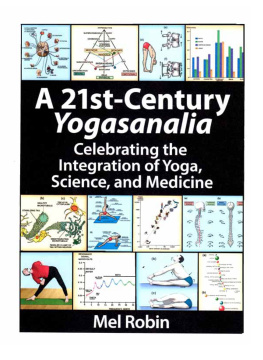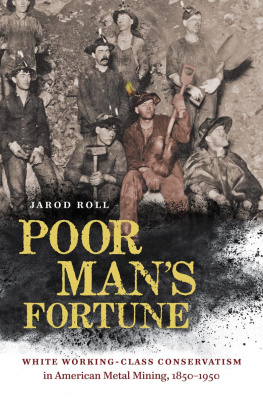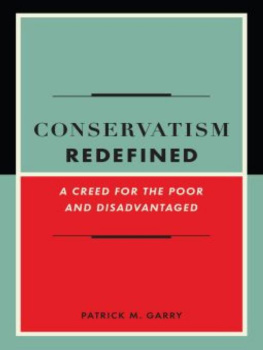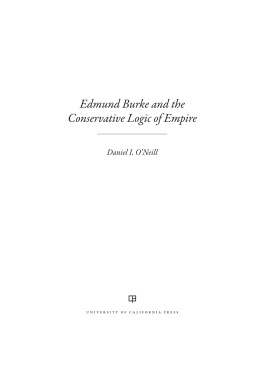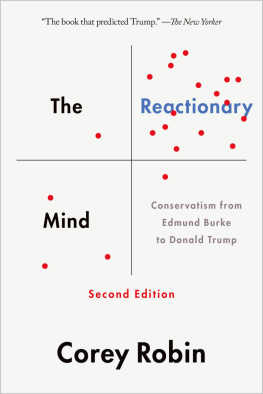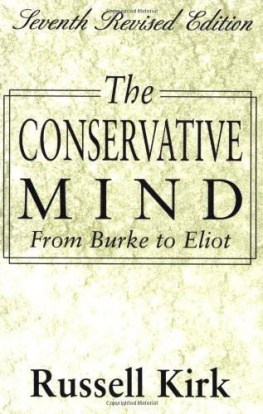The Reactionary Mind
Dont you know that No is the wildest word we consign to Language?
Emily Dickinson
THE REACTIONARY MIND
Conservatism from Edmund Burke to Sarah Palin
COREY ROBIN


Oxford University Press, Inc., publishes works that further
Oxford Universitys objective of excellence
in research, scholarship, and education.
Oxford New York
Auckland Cape Town Dar es Salaam Hong Kong Karachi
Kuala Lumpur Madrid Melbourne Mexico City Nairobi
New Delhi Shanghai Taipei Toronto
With offices in
Argentina Austria Brazil Chile Czech Republic France Greece
Guatemala Hungary Italy Japan Poland Portugal Singapore
South Korea Switzerland Thailand Turkey Ukraine Vietnam
Copyright 2011 by Oxford University Press, Inc.
Published by Oxford University Press, Inc.
198 Madison Avenue, New York, NY 10016
www.oup.com
Oxford is a registered trademark of Oxford University Press
All rights reserved. No part of this publication may be reproduced, stored in a retrieval system, or transmitted, in any form or by any means, electronic, mechanical, photocopying, recording, or otherwise, without the prior permission of Oxford University Press.
Library of Congress Cataloging-in-Publication Data
Robin, Corey, 1967
The reactionary mind : conservatism from
Edmund Burke to Sarah Palin / Corey Robin.
p. cm.
Includes bibliographical references and index.
ISBN 978-0-19-979374-7 (hardcover : alk. paper)
1. ConservatismHistory. I. Title.
JC573.R63 2011 320.52dc22 2011006039
9 8 7 6 5 4 3 2 1
Printed in the United States of America on acid-free paper
For Laura
CONTENTS
Much of this book originated in literary periodicals and magazines. Were it not for editors Alex Star, Paul Laity, Mary-Kay Wilmers, Paul Meyerscough, Adam Shatz, John Palattella, and Jackson Lears, I never would have written about the right. Its often assumed that academics who publish in nonacademic venues are trotting out their scholarly research for popular consumption, simplifying complex ideas first worked out in the laboratories of academe. For me, the process of writing this book has been the reverse: conservatism became a scholarly interest of mine through my nonacademic writing, and most of my ideas about the right were formulated in conversation with and writing for these editors, especially Alex and John.
Intellectually, this book owes its inspiration to Arno Mayer and Karen Orren. No two scholars have done more to advance my understanding of the persistence of the old regimein Europe and the United Statesthan Karen and Arno. Against the conventional wisdom of the left and the right, which assumes that medievalism has been washed away by modernity, Karen and Arno opened my eyes to the belated feudalism of our post-feudal world. While they undoubtedly would disagree with my interpretation of conservatism, I could not have come to it without their enormously generative work.
In the course of writing and revising these essays, I have been sustained by a broad circle of readers: historians and political scientists, poets and essayists, theorists and philosophers, literary critics and sociologists, journalists and editors. For their contributions to one or more of these essays, I would like to thank Jed Abrahamian, Bruce Ackerman, Joel Allen, Gaston Alonso, Joyce Appleby, Moustafa Bayoumi, Seyla Benhabib, Marshall Berman, Sara Bershtel, Akeel Bilgrami, Norman Birnbaum, Steve Bronner, Dan Brook, Sebastian Budgen, Josh Cohen, Peter Cole, Paisley Currah, Lizzie Donahue, Jay Driskell, Tom Dumm, John Dunn, Sam Farber, Liza Featherstone, Jason Frank, Steve Fraser, Josh Freeman, Paul Frymer, Sam Goldman, Manu Goswami, Alex Gourevitch, Pete Hallward, Harry Harootunian, Chris Hayes, Doug Henwood, Dick Howard, David Hughes, Judy Hughes, Allen Hunter, Jack Jacobs, Ira Katznelson, Gordon Lafer, Jill Lepore, Penny Lewis, Joe Lowndes, Steven Lukes, Kieko Matteson, Kevin Mattson, John Medeiras, Kathy Newman, Molly Nolan, Anne Norton, Jolie Olcott, Christian Parenti, Di Paton, Rick Perlstein, Ros Petchesky, Kim Phillips-Fein, Katha Pollitt, Aziz Rana, Andy Rich, Andrew Ross, Kristin Ross, Saskia Sassen, Ellen Schrecker, George Scialabba, Richard Seymour, Nikhil Singh, Quentin Skinner, Jim Sleeper, Rogers Smith, Katrina vanden Heuvel, John Wallach, Eve Weinbaum, Keith Whittington, Daniel Wilkinson, Wesley Yang, Brian Young, and Marilyn Young.
A good portion of this material has been presented in workshops and talks at universities across the country. I am grateful for the comments and suggestions I received on those occasions from Arash Abizadeh, Anthony Appiah, Banu Bargu, Seyla Benhabib, Akeel Bilgrami, Elizabeth Cohen, Josh Cohen, Julie Cooper, the late Jack Diggins, Matt Evans, Nancy Fraser, Mark Graber, Nan Keohane, Steve Macedo, Karuna Mantena, Andrew March, Tom Medvetz, Andrew Murphy, Andrew Norris, Anne Norton, Joshua Ober, Philip Pettit, Andy Polsky, Robert Reich, Austin Sarat, Peter Singer, Rogers Smith, Miranda Spieler, Zofia Stemplowska, Nadia Urbinati, and Leo Zaibert.
I would like to thank the following institutions for providing much needed release time from my teaching: the American Council of Learned Societies; the Princeton University Center for Human Values; the Office of the Provost at Brooklyn College; and the Professional Staff Congress of the City University of New York.
An extra special thanks goes to my kitchen cabinet of first readers: Greg Grandin, Adina Hoffman, Robert Perkinson, and Scott Saul; to Marco Roth, who came up with the books title; to Charles Petersen, copy editor extraordinaire; to my students at Brooklyn College and the CUNY Graduate Center, who have worked with me through the texts and tomes of the right; to Alexandra Dauler and Marc Schneider at Oxford University Press (OUP); and to David McBride, my editor at OUP, an unfailing source of excellent advice who believed in this project from its inception and shepherded it through with what seems to be effortless wisdom, patience, and grace.
My greatest thanks go to Laura Brahm, who listened to these ideas when they were half-sentences and read them when they were half-baked. She has brought to these essays an eye for what matters and an unerring sense of taste. She is always and inevitably the only reader I want to please.
The Reactionary Mind
A political party may find that it has had a history, before it is fully aware of or agreed upon its own permanent tenets; it may have arrived at its actual formation through a succession of metamorphoses and adaptations, during which some issues have been superannuated and new issues have arisen. What its fundamental tenets are, will probably be found only by careful examination of its behaviour throughout its history and by examination of what its more thoughtful and philosophical minds have said on its behalf; and only accurate historical knowledge and judicious analysis will be able to discriminate between the permanent and the transitory; between those doctrines and principles which it must ever, and in all circumstances, maintain, or manifest itself a fraud, and those called forth by special circumstances, which are only intelligible and justifiable in the light of those circumstances.
T. S. Eliot, The Literature of Politics
Since the modern era began, men and women in subordinate positions have marched against their superiors in the state, church, workplace, and other hierarchical institutions. They have gathered under different bannersthe labor movement, feminism, abolition, socialismand shouted different slogans: freedom, equality, rights, democracy, revolution. In virtually every instance, their superiors have resisted them, violently and nonviolently, legally and illegally, overtly and covertly. That march and demarche of democracy is the story of modern politics or at least one of its stories.
Next page


